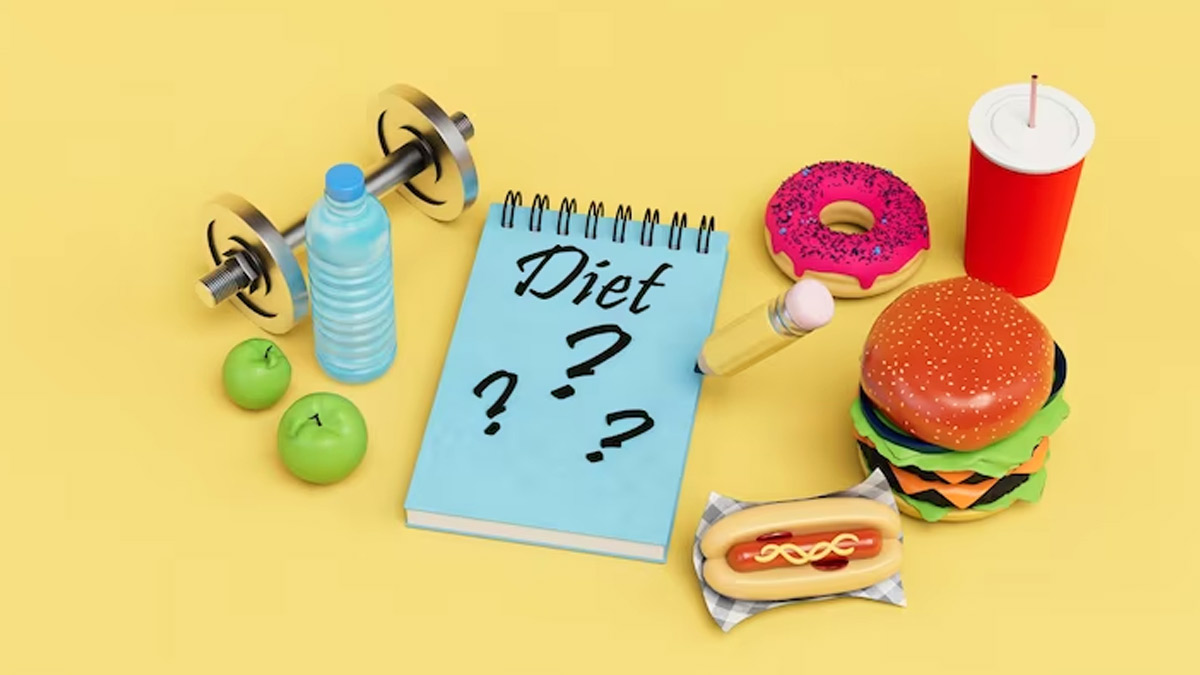
Most people cut their caloric consumption in order to lose weight. However, the calorie restriction can backfire if done incorrectly, making weight loss even more difficult and decreasing your metabolism. So, it is important to consume a particular number of calories every day, depending on your age, gender, and level of activity. You can get away with eating more if you're young and active.
Table of Content:-
The US Department of Agriculture suggests that women between the ages of 19 and 30 should consume 2,000 calories per day if they lead a sedentary lifestyle and 2,400 calories per day if they lead an active lifestyle. On the other hand, men of the same age group should consume 2,400 and 3,000 calories, respectively.

Obese people may go on very low-calorie diets (800 to 1,000 calories per day) for a short time to fulfil a weight loss goal, but then they switch to a higher-calorie diet to attain and maintain their new, healthy weight. A medical professional will frequently evaluate the diet to ensure that it is nutritionally balanced. In reality, some people perform better on low-calorie diets than others. Even if you plan to reduce weight, your metabolism may slow down as a protective mechanism against the possibility of hunger.
Also read: Study Finds Almonds Can Help Cut Calories
To compensate for the energy deficit, the metabolic rates of some people dropdown. Energy limitation causes the metabolic rate to fluctuate, which contributes significantly to the wide range of results observed.
The Potential Dangers Of Low-Calorie Consumption Starvation Mode
Calorie deficiency can cause starvation. Appetite slows down the metabolism in order to conserve energy for breathing and pulse. You may be more susceptible to illness. Muscle, bone, and organ shortages can result from poor nutrition.
In March 2006, the journal "Environmental Health and Preventive Medicine" indicated that severely reduced calorie consumption may affect metabolism. Fat storage is caused by calorie restriction. Before beginning a diet, consult with a doctor. Your doctor may advise you to eat less processed food, more vegetables, and fewer fruits, depending on your medical history and condition. Calories are burned differently by diet and exercise. Following are the signs that indicate you are too low on calories.
Hair Fall
Every day hair sheds. You may need to eat more if your hairbrush or shower drain has more hair than usual. Several minerals are required for normal hair formation. A bad diet is frequently the cause of hair loss.
Frequent Hunger
According to studies, rigorous calorie restriction increases desire and food cravings due to hormone changes that govern hunger and fullness. Reduced levels of leptin and IGF-1 boost hunger signals.
Also read: How Many Calories In A Banana? Impact On Weight Loss
Sleep Problems
In hundreds of experiments, sleep deprivation induces insulin resistance and weight gain. Overeating and strict dieting can also cause sleep problems. According to animal and human research, starvation-level calorie restriction interrupts sleep and lowers deep sleep.
Being Cold All the time
Your body must expend many calories in order to generate heat and maintain a healthy and comfortable internal temperature. Even minimal calorie restriction has been shown to cause a reduction in basal body temperature.
Image credit-- FreePik
Also watch this video
How we keep this article up to date:
We work with experts and keep a close eye on the latest in health and wellness. Whenever there is a new research or helpful information, we update our articles with accurate and useful advice.
Current Version